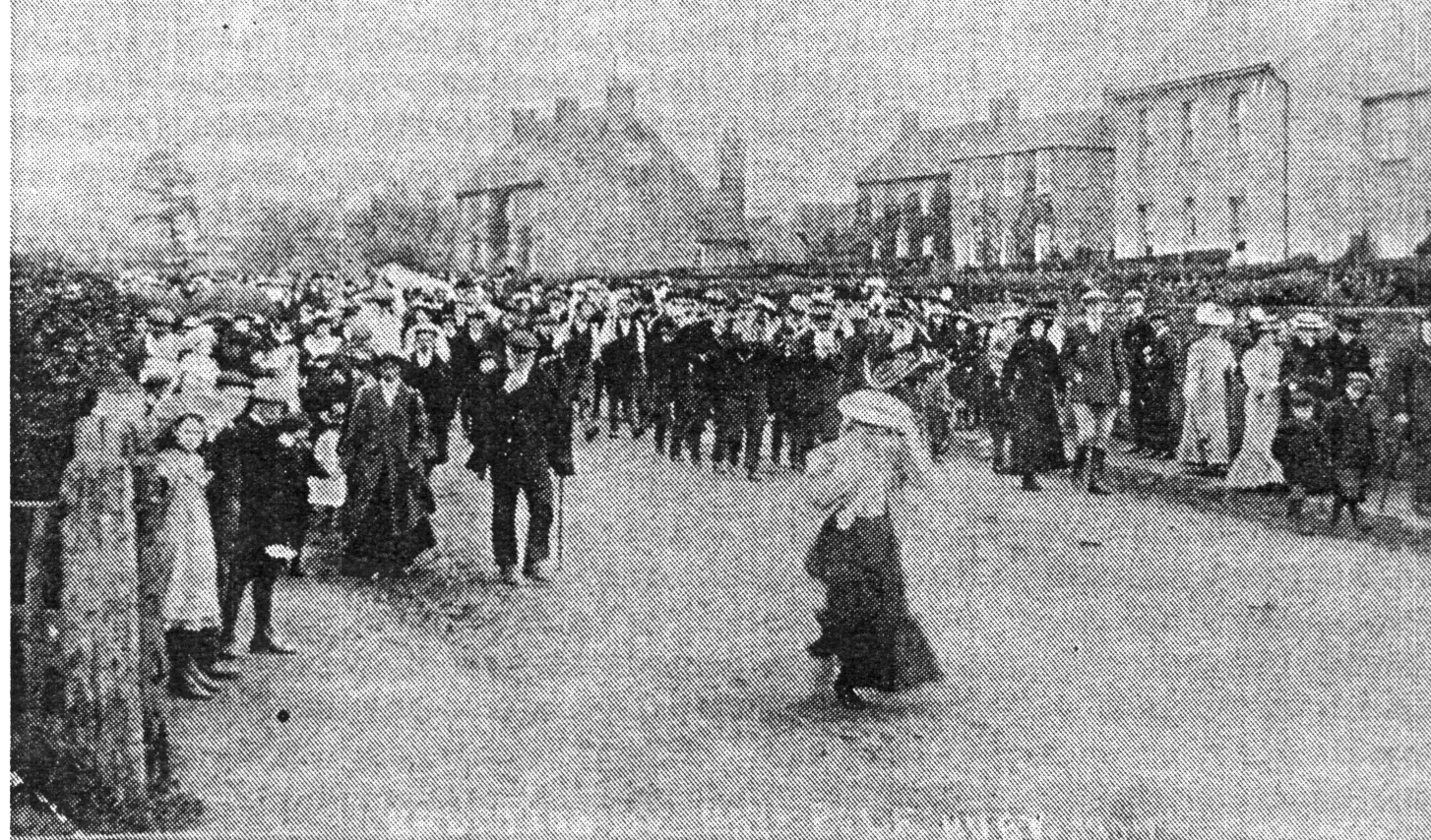Back to the Main Historical Society page
Back to the Barwicker Contents page
Vanished Maypoles
No.1 THE VANISHED MAYPOLE OF HUBY Barwicker No.26
June 1992
The maypole at Barwick is one of the few surviving examples of
what in the past was a temporary or permanent feature of many
Villages in Yorkshire. Some of these still remain and others are
revealed only in old photographs or perhaps the memories of local
inhabitants. The search for the story behind these village
monuments has resulted in enjoyable and interesting expeditions to
some delightful places in the county.
Sometimes the church, but more often the village pub, has been
the centre of our enquiries, resulting in animated conversation
with the local population who are often amazed that anyone from
outside should be interested in their village pole. We have been
directed to people with long connections with the village and the
search has continued by letter and by phone As a forerunner to
next year's maypole ceremonies in Barwick, we are including a
little of the history of some of the Yorkshire maypoles.
The photograph above, made available to us by Mrs P Pickles of
Vakefield, was taken on 1 May 1907 in the village of Ruby, about
eight miles to the north of York. It shows a maypole being
carried along the main street of the village prior to its raising.
The pole is preceded by a uniformed brass band and accompanied by
a large crowd of Villagers, men and women, young and old, all on
foot and in their Sunday best. There appears to be no maypole
queen.
An exhibition of seven additional photographs in the Bew Inn
at Huby and conversation with some of the villagers provided some
further details of this Village ceremony. The pole was erected at
the south end of the main street where it divides into roads to
Sutton-on-Forest and to Tollerton. It was over 60 feet high,
surmounted by a fox weather vane and decorated with painted
spirals much more narrowly spaced than those at Barwick. We were
told that the design arose from the pattern produced by winding
ribbons round the pole.
The photographs show that the pole was 'reared' by putting the
end into the hole and resting it initially on a cart. Then it was
raised using a very stout wooden pole with a cross piece at the
end and wielded by as many strong men as could grip it. The
raising was then completed using three ropes tied about two thirds
of the way up the pole and held by groups of men. Dne supposes
that someone was in charge but the photographs do not reveal this
clearly.
This maypole was not danced round but the photographs show
that a small pole was erected in the street with ribbons attached
and was duly 'plaited' as at Barwick. The large pole was not taken
down at regular intervals but only when it required decoration or
replacement, so the raising might not have been a very frequent
occurrence. What is of interest to Barwiclt is that it involved a
'ceremony', attended by a large number of visitors.
Plaiting the maypole in the street wae stopped, perhaps in the
thirties, because of increased traffic but was continued in the
field behind the large pole. A photograph of this period shows the
pole surrounded by a small circular fence. The maypole dancing
seems to have been discontinued at the outset of the Second World
War. The large pole was considered unsafe and was taken down in
1940. The fox now decorates one of the garages in the main street.
The practice of plaiting the small maypole was revived after
the war but has not been continued and the place once graced by
the large pole is now occupied by modern houses, just one more
reason why the ancient custom must not be allowed to cease in
Barwick.
Anyone who knows the village of Huby well might be a 11 ttle
puzzled by the photograph and with good reason. By some
photographic 'carelessness', the picture is reversed and can only be
made clear by viewing it in a mirror. 'The camera does not lie',
we are told but sometimes the truth is revealed only with
difficulty.
Arthur Bantoft
Back to the top
Back to the Main Historical Society page
Back to the Barwicker Contents page

